About the project
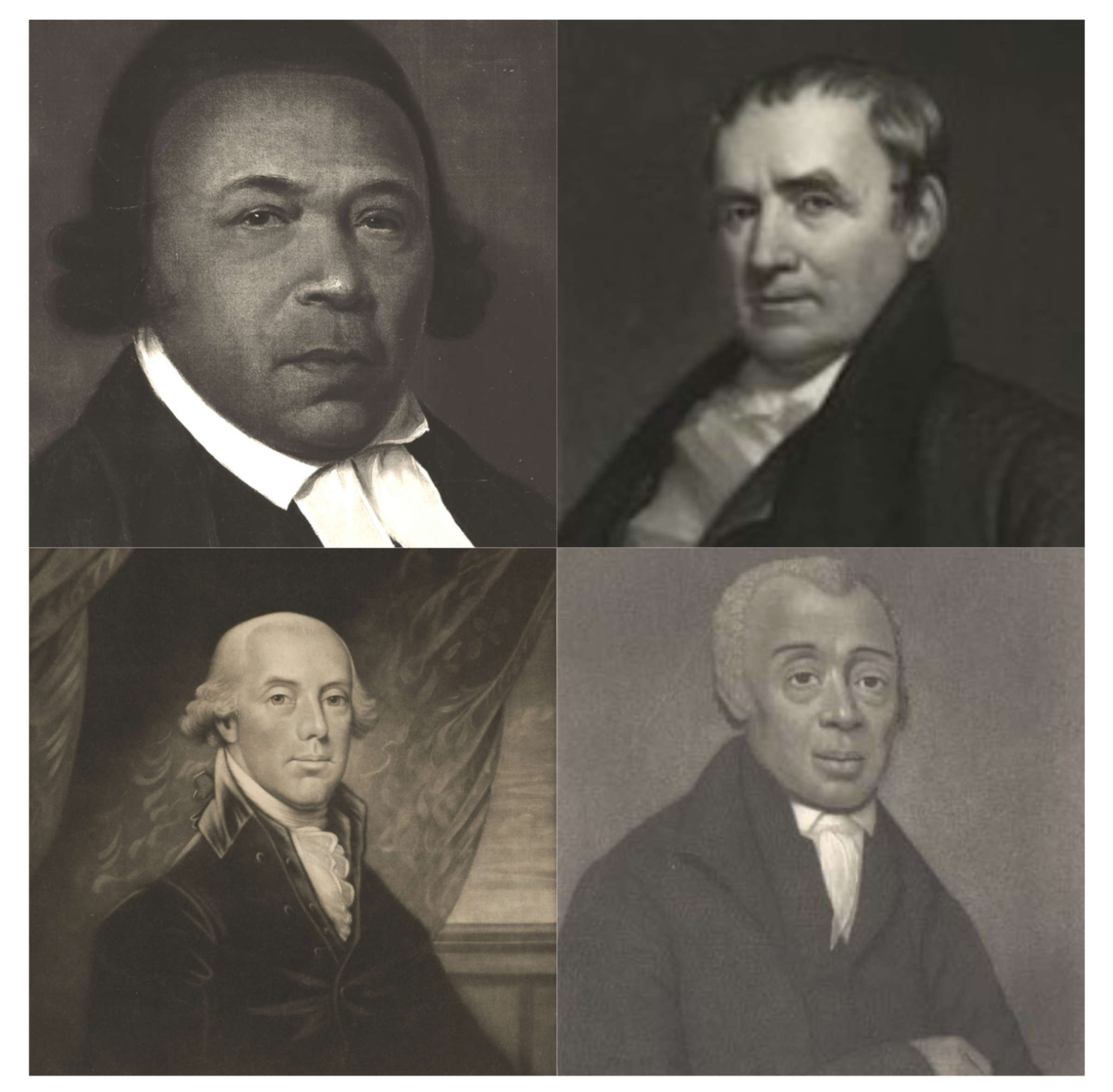
A REFUTATION
Dramatic Reading of A Narrative of the Proceedings of the Black People, During the Late Awful Calamity in Philadelphia, in the Year 1793, and A REFUTATION of Some Censures, Thrown upon Them in Some Late Publications, by Absalom Jones (1746 – 1818) and Richard Allen (1760 – 1831) A Short Account of the Malignant Fever, Lately Prevalent in Philadelphia, With a Statement of the Proceedings That Took Place on the Subject in Different Parts of the United States, by Matthew Carey (1760 -1839)
A REFUTATION presents dramatic readings by acclaimed actors of excerpts from two conflicting historic accounts of Philadelphia’s 1793 yellow fever epidemic as a catalyst for guided audience discussions about health inequities in America today, grounded in the perspectives of nurses, caregivers, and first responders.
The primary text—a pamphlet by Absalom Jones (the first Black Episcopal priest) and Richard Allen (founder of the AME church) describing the Black community’s experience of the epidemic—was the first federally copyrighted text by African American authors. It was written in response to a highly popular, short history of the epidemic by the Irish American publisher Matthew Carey, which traded in racist tropes and asserted that Black nurses and first responders had swindled and extorted the white population of Philadelphia for which they cared. In their pamphlet, Jones and Allen vigorously refuted Carey’s claims and debunked the medical theory—widely held at the time—that African Americans were immune to yellow fever, by drawing a stark, unsparing picture of their service and suffering during the epidemic.
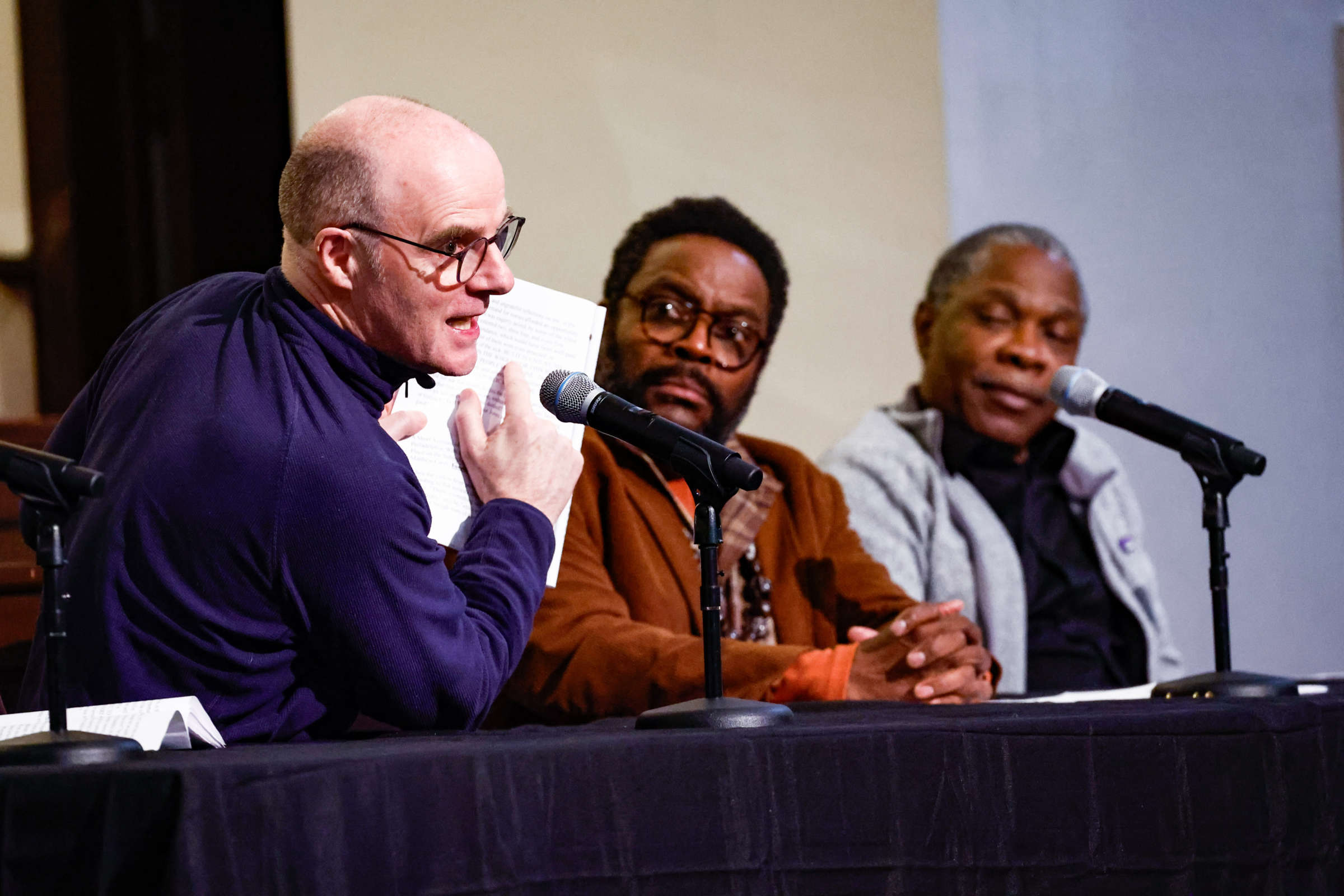
About the plays
-
A Narrative of the Proceedings of the Black People, During the Late Awful Calamity in Philadelphia, in the Year 1793, and A REFUTATION of Some Censures, Thrown upon Them in Some Late Publications by Absalom Jones (1746 – 1818) and Richard Allen (1760 – 1831)
A Narrative of the Proceedings of the Black People, During the Late Awful Calamity in Philadelphia, in the Year 1793, and A REFUTATION of Some Censures, Thrown upon Them in Some Late Publications, by Absalom Jones (1746 – 1818) and Richard Allen (1760 – 1831), highly distinguished civic and religious leaders from Philadelphia’s free Black community, was the first publication by Black authors to receive a federal copyright in the United States. Both men were born into slavery, purchased their freedom, and rose to become the important leaders in the nation’s largest free Black community. Jones was the nation’s first Black Episcopal priest, and Allen founded Bethel Church, the oldest African Methodist Episcopal congregation in the nation. Their pamphlet is the only depiction of the 1793 yellow fever epidemic that foregrounds the perspectives and experiences of Black people and the first known text to express Black community anger and directly challenge accusations and libelous statements by a white author. It had a print run of 250-500 copies.
-
A Short Account of the Malignant Fever, Lately Prevalent in Philadelphia, With a Statement of the Proceedings That Took Place on the Subject in Different Parts of the United States by Matthew Carey (1760 -1839)
A Short Account of the Malignant Fever, Lately Prevalent in Philadelphia, With a Statement of the Proceedings That Took Place on the Subject in Different Parts of the United States, by Matthew Carey (1760 -1839), an Irish immigrant and the nation’s most preeminent publisher at the time, was a runaway success. Roughly 10,000 copies of the pamphlet were sold in four editions over the span of two months. The pamphlet made distorted, racist claims about Black nurses, care givers, and first responders during the height of the epidemic, prompting Absalom Jones and Richard Allen to publish a rebuttal seven weeks after its first print run.
A REFUTATION Highlights
A REFUTATION Full Recording
Ebenezer United Methodist Church - Capitol Hill / 2025
Watch the full recording of the premiere of A REFUTATION featuring performances by Chad Coleman (The Walking Dead, The Wire), Brían F. O'Byrne (Conclave, Million Dollar Baby), Michael Potts (The Wire, The Piano Lesson), and Peter Marks (former chief theater critic for The Washington Post).
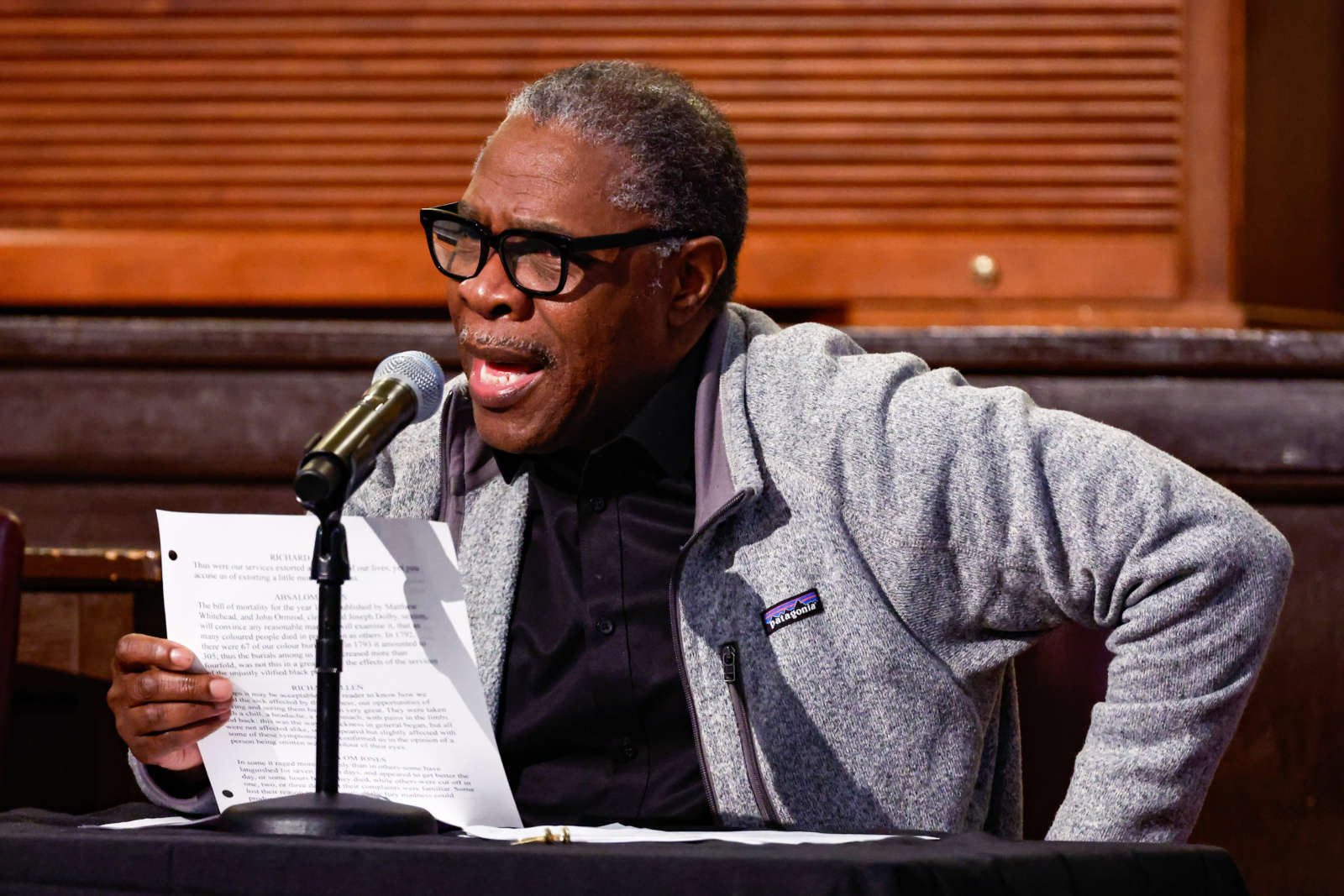
Michael Potts plays Richard Allen
Ebenezer United Methodist Church - Capitol Hill / 2025
Michael Potts plays Richard Allen. Photo by Paul Morigi for The Greenwall Foundation.
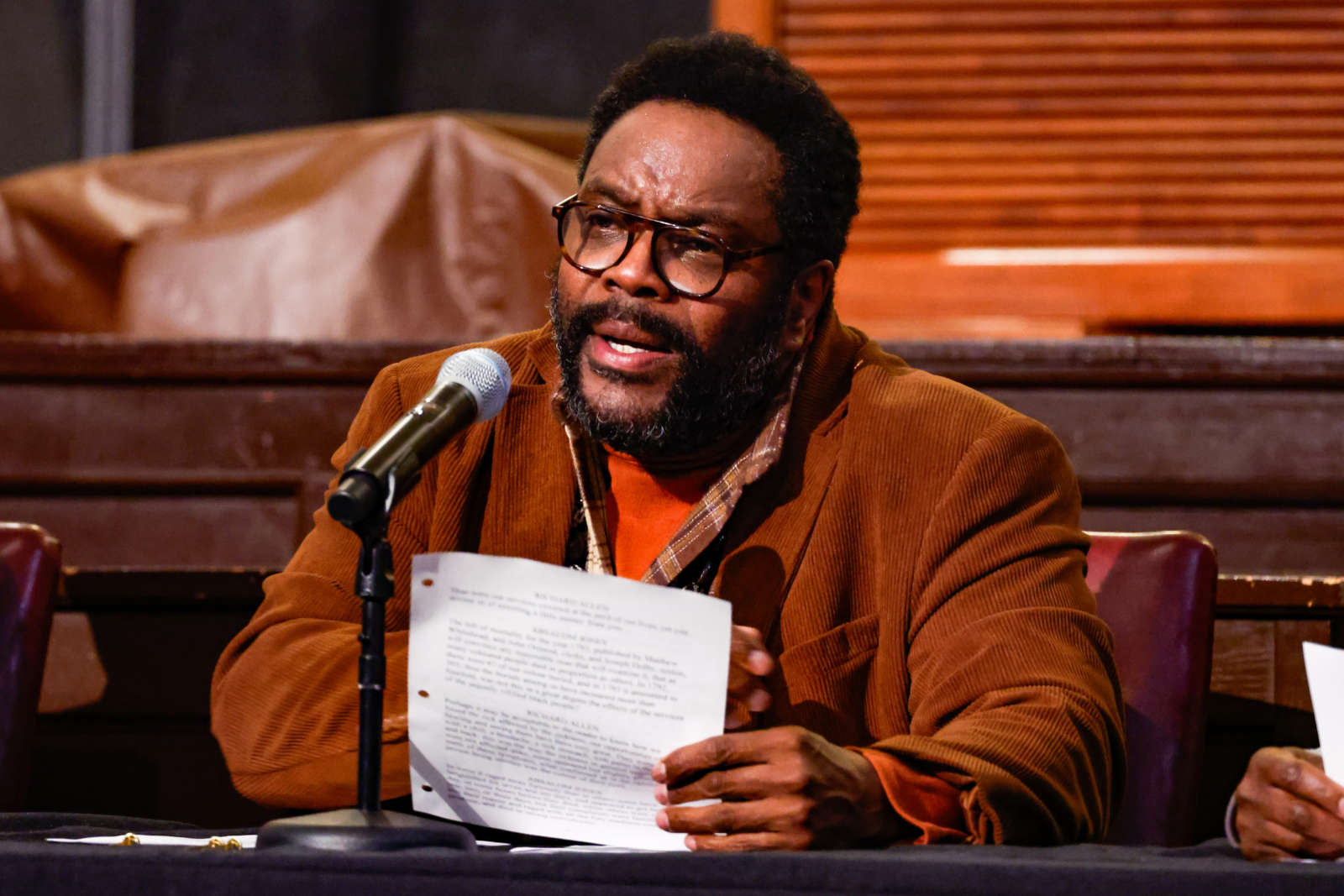
Chad Coleman plays Absalom Jones
Ebenezer United Methodist Church - Capitol Hill / 2025
Chad Coleman plays Absalom Jones. Photo by Paul Morigi for The Greenwall Foundation.
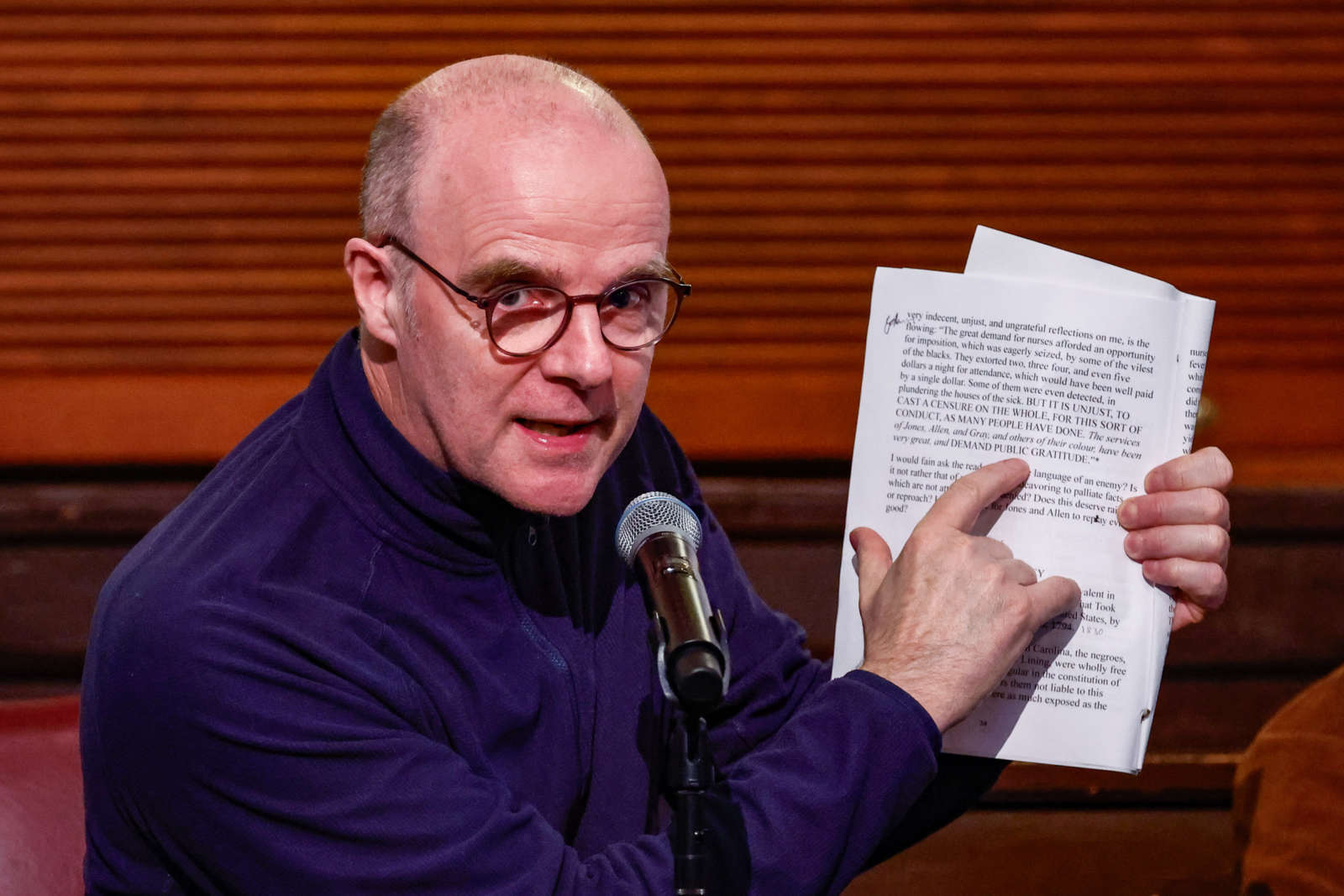
Brían F. O'Byrne plays Matthew Carey
Ebenezer United Methodist Church - Capitol Hill / 2025
Brían F. O'Byrne plays Matthew Carey. Photo by Paul Morigi for The Greenwall Foundation.
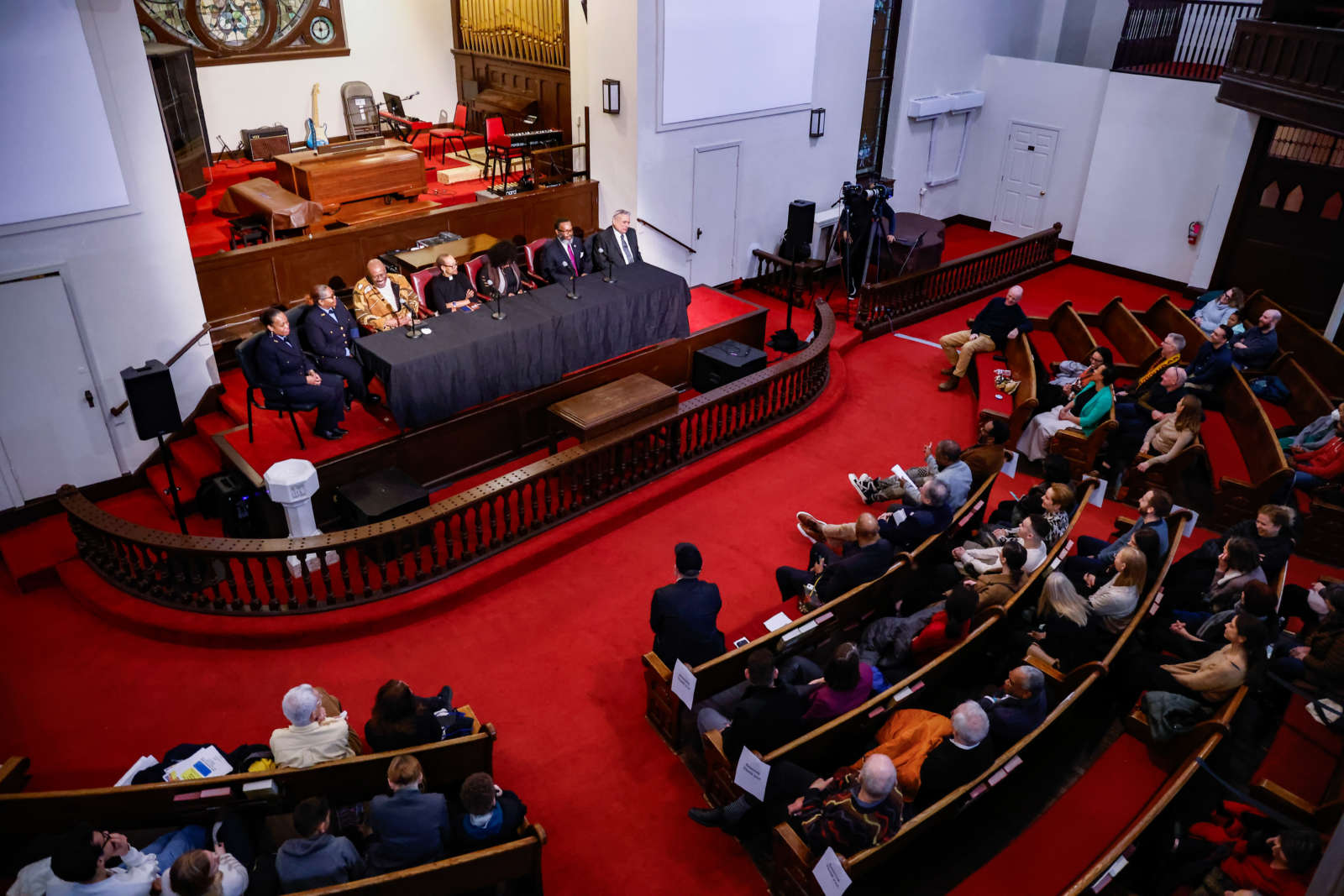
Ebenezer United Methodist Church - Capitol Hill
Ebenezer United Methodist Church - Capitol Hill / 2025
Ebenezer United Methodist Church - Capitol Hill. Photo by Paul Morigi for The Greenwall Foundation.
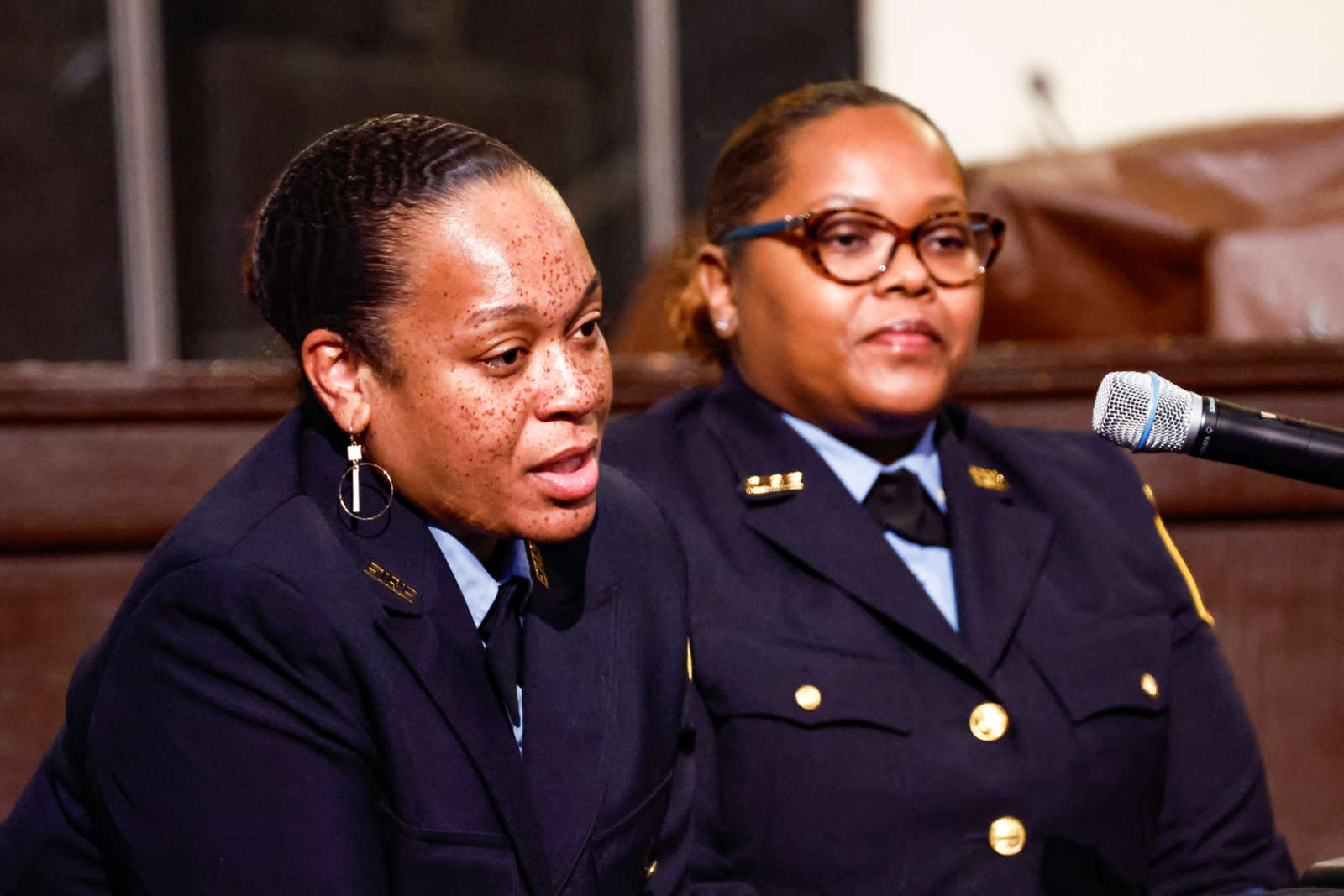
Panelists from Washington D.C. Fire Department.
Ebenezer United Methodist Church - Capitol Hill. / 2025
Panelists from Washington D.C. Fire Department. respond to the text. Photo by Paul Morigi for The Greenwall Foundation.
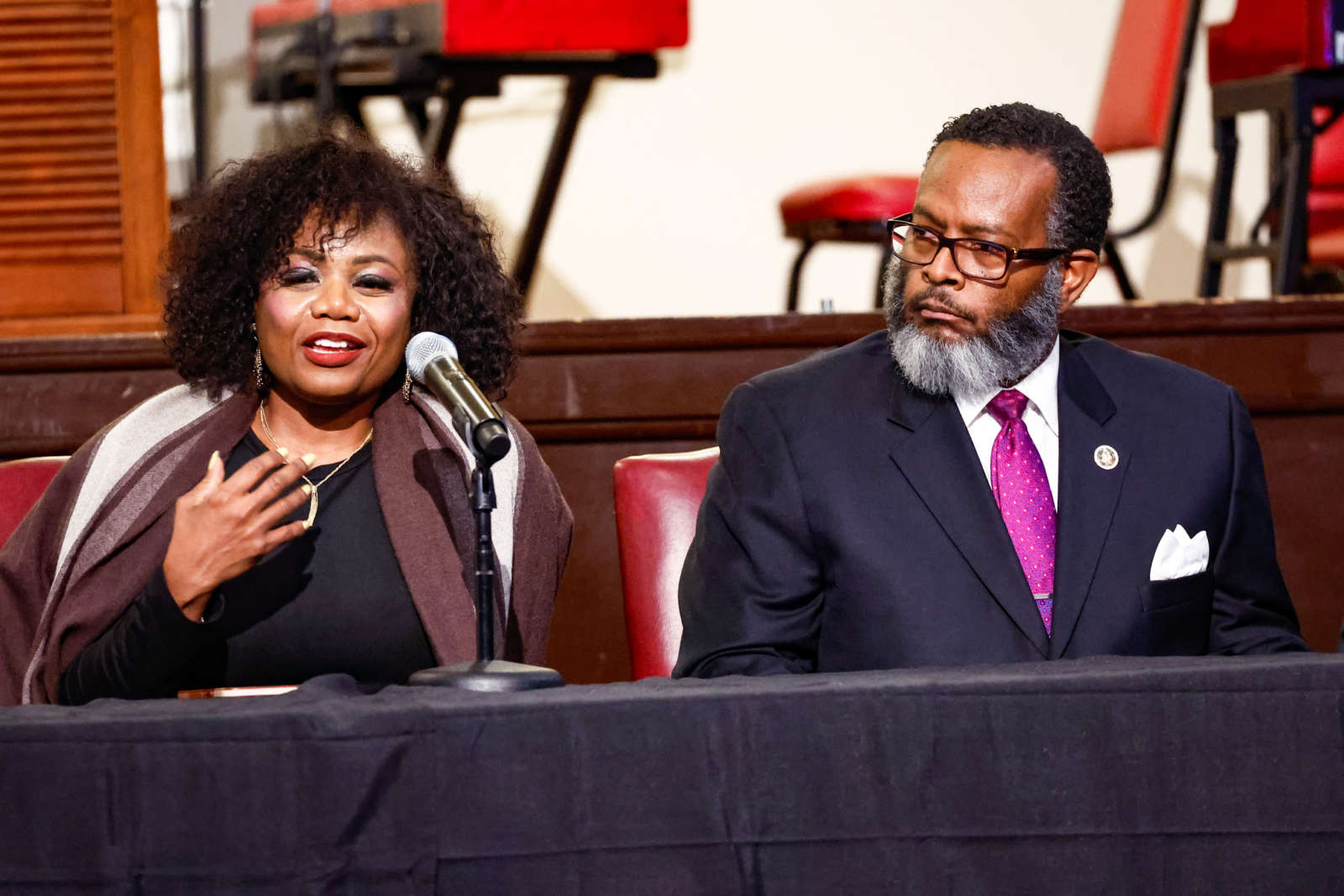
Panelists from Washington, D.C
Ebenezer United Methodist Church - Capitol Hill. / 2025
Panelists from Washington, D.C. respond to the text. Photo by Paul Morigi for The Greenwall Foundation.
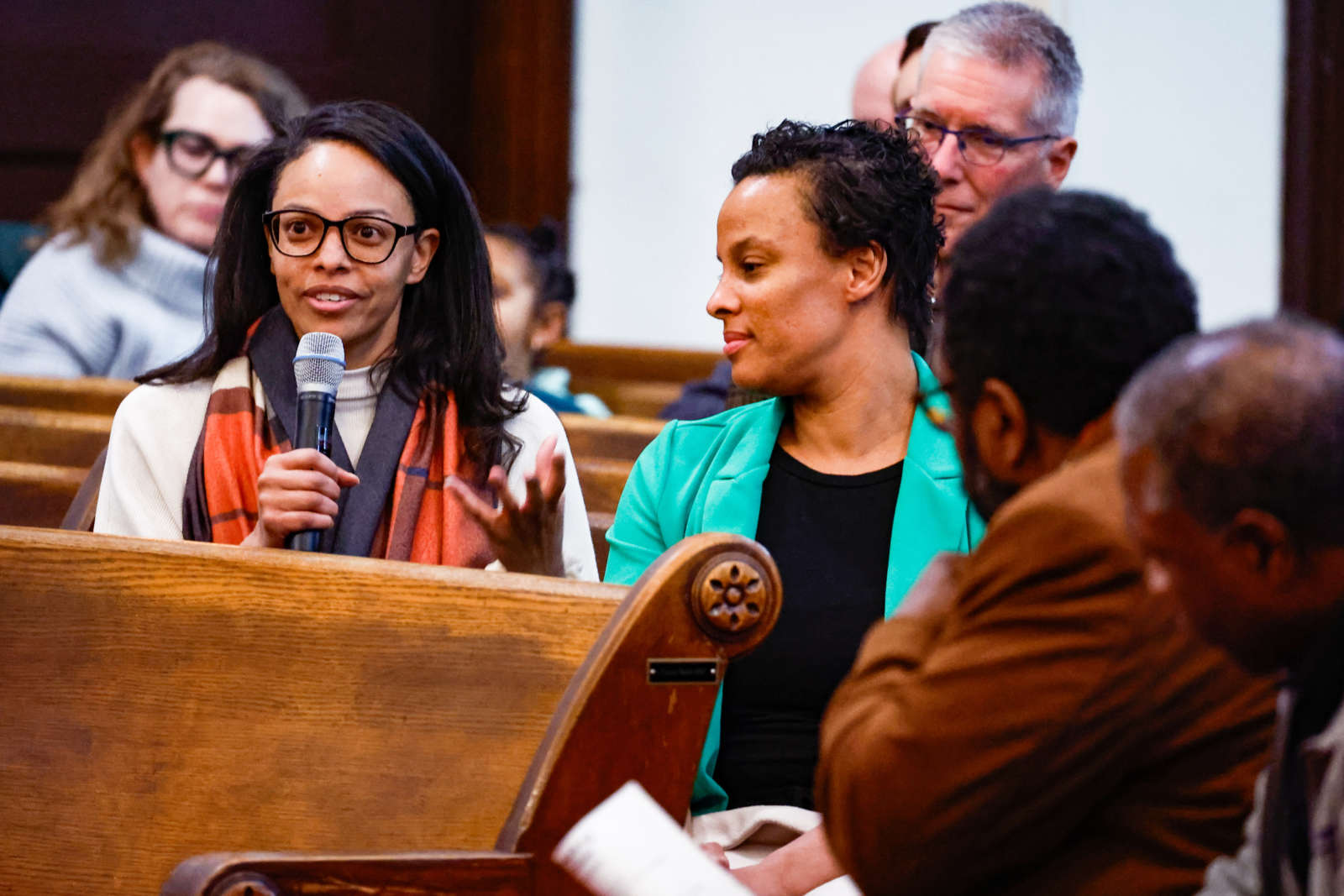
Audience
Ebenezer United Methodist Church - Capitol Hill. / 2025
Audience members share their insights during the discussion.
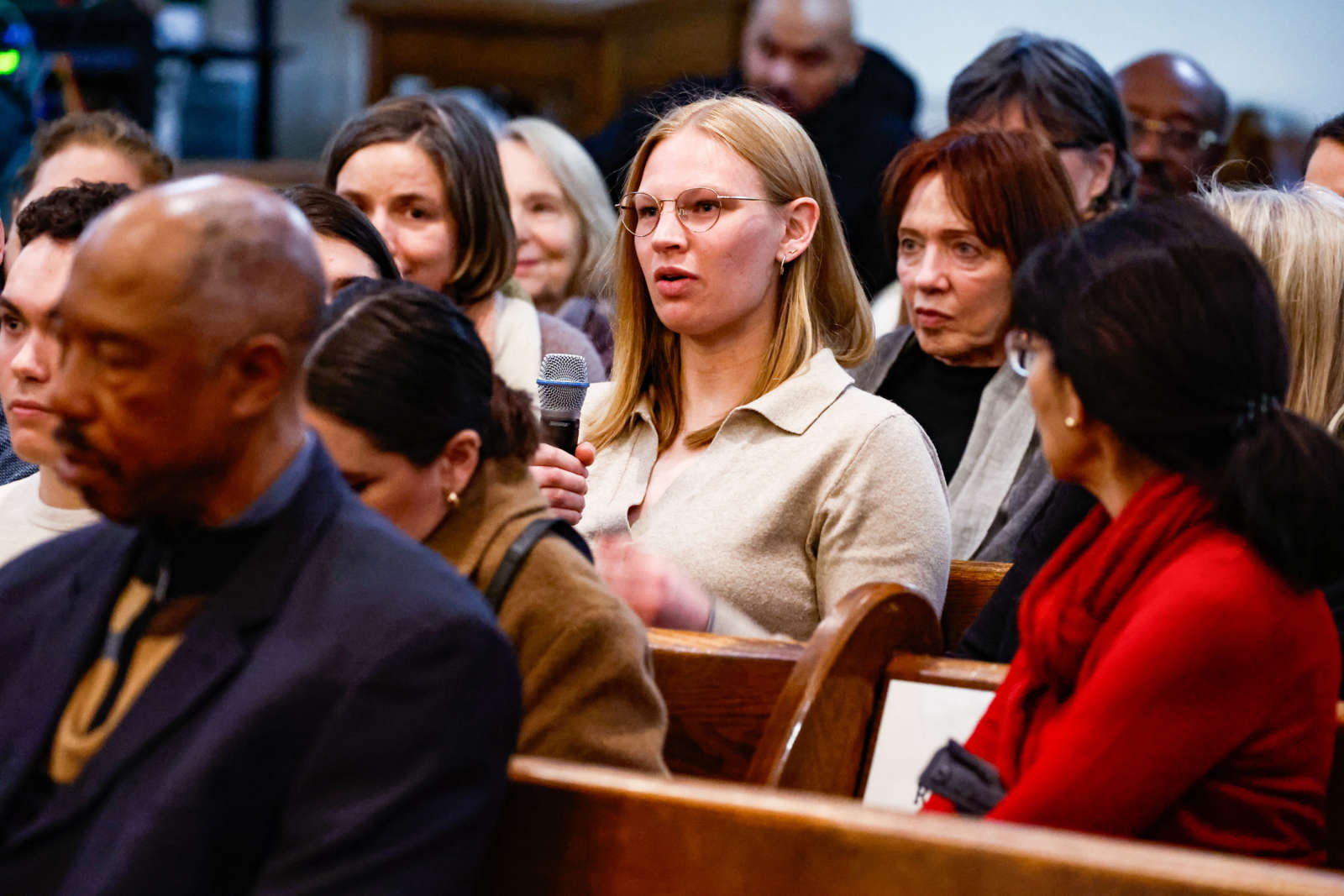
Audience
Ebenezer United Methodist Church - Capitol Hill. / 2025
Audience members share their insights during the discussion.
Explore Projects
-
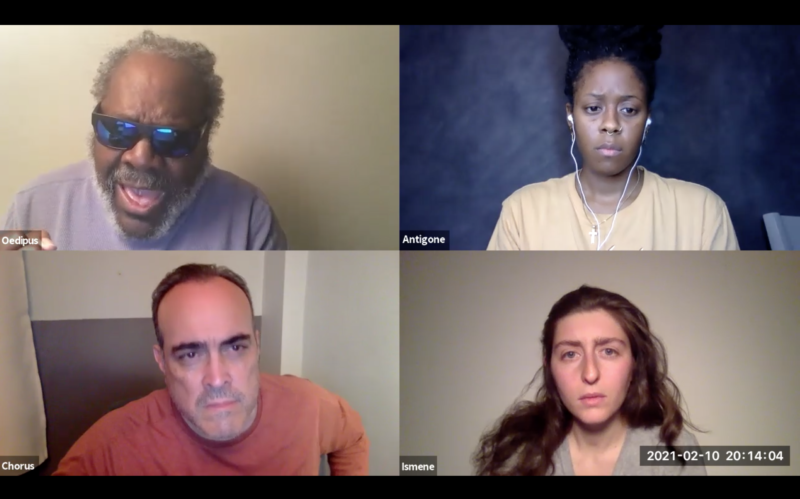 HomelessnessThe Oedipus at Colonus Project
HomelessnessThe Oedipus at Colonus ProjectThe Oedipus at Colonus Project presents readings of scenes from Sophocles’ final play, Oedipus at Colonus, as catalyst for powerful, community-driven conversations about homelessness, the immigration and refugee crisis, and the challenges of eldercare during and after the pandemic.
-
 Addiction & Substance AbuseAddiction Performance Project
Addiction & Substance AbuseAddiction Performance ProjectDesigned to raise awareness about opiate addiction and alcohol abuse, the project is intended to promote dialogue about helping those who are struggling with addiction.
-
 Natural DisasterThe Tohoku Project
Natural DisasterThe Tohoku ProjectThe Tohoku Project: Sumidagawa presents powerful dramatic readings by professional actors of Sumidagawa, a Noh play from the early 15th Century that timelessly depicts the unique challenges faced by parents in the wake of unimaginable disaster. Each reading is followed by the responses of community panelists, culminating in a lively, facilitated audience discussion. This interactive event promotes healthy, constructive dialogue about the lasting impact of the Tohoku disaster upon individuals, families, and communities—fostering compassion, understanding, awareness, and positive action.








